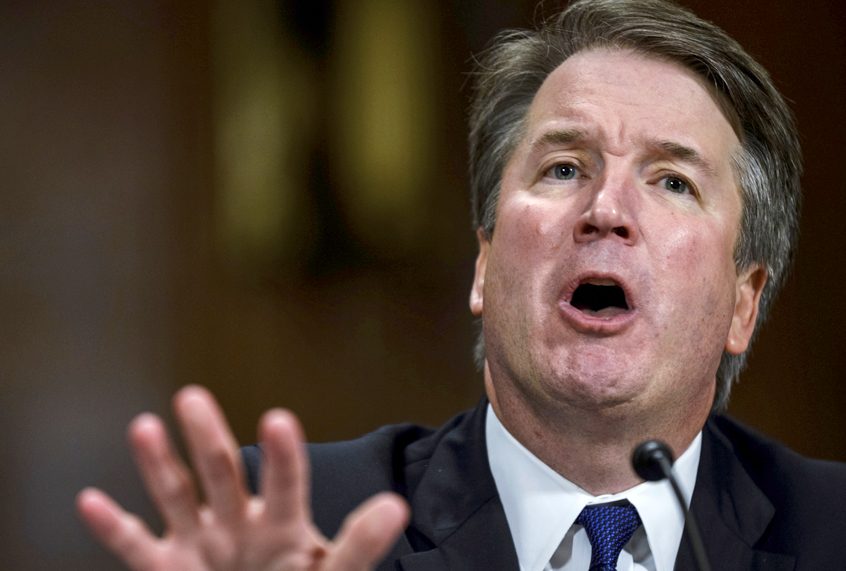House Judiciary Committee Chair Jerry Nadler sent a letter Tuesday requesting the unreleased documents from the Senate confirmation of Justice Brett Kavanaugh.
Kavanaugh’s highly contentious nomination involved a review of his extensive records serving as staff secretary in the White House Counsel’s Office under President George W. Bush. In this position, Kavanaugh’s work involved a voluminous number of documents and records that could potentially cast light on his views of the law and his fitness to be a Supreme Court justice, so Democrats demanded to see the whole archive. But Republicans concluded that such an extensive and comprehensive review was unnecessary — they didn’t want to delay Kavanaugh’s nomination — and the majority of the documents in question were never released.
“The Members note that during Kavanaugh’s Senate confirmation process, the Senate Judiciary Committee received only a small fraction of Justice Kavanaugh’s White House record before voting on his nomination,” a press release from Nadler’s office said.
“We now ask that the National Archives produce the records related to Justice Kavanaugh’s service in the White House Counsel’s Office, as originally requested by former Chairman Grassley, to the House Judiciary Committee,” the letter said. “We further request that the Archives process and produce the same categories of records requested by former Chairman Grassley as they pertain to Justice Kavanaugh’s tenure as White House Staff Secretary.”
The letter explained the committee’s justification for the request:
In the coming year, the Supreme Court will again address important matters regarding civil rights, criminal justice, and immigration. The Court may also review certain high-profile cases related to reproductive rights, the separation of powers, and the limits of executive authority—all topics within the jurisdiction of the House Judiciary Committee (the Committee). Now and as always, the Court’s fidelity to the principles of equal and impartial justice, as well as the public’s faith in the integrity of the judiciary, are foundational to maintaining the rule of law.
The Committee also exercises legislative authority, including investigative and oversight authority, with respect to “[t]he judiciary and judicial proceedings, civil and criminal,” and “federal courts and judges.”[1] The Committee’s jurisdiction encompasses the laws governing judicial ethics and the judicial oath of office; judicial disqualification, and misconduct; and the organization of the Supreme Court. In that capacity, the House Judiciary Subcommittee on Courts, Intellectual Property, and the Internet recently held a hearing to consider possible legislation promoting ethics, accountability, and transparency in the federal courts.[2] As it has in the past, the Committee is considering legislative proposals to create a code of conduct for Supreme Court Justices.[3] It has also reviewed other proposals in recent years regarding transparency in the Supreme Court’s proceedings, the adequacy of the Justices’ financial disclosures, and the circumstances in which Justices or judges must disqualify themselves from cases.[4]


